Gateway House launches first Quad Economy and Technology Task Force
The Task Force led by Gateway House will study economic and technological cooperation between the four like-minded democracies in the Indo-Pacific.
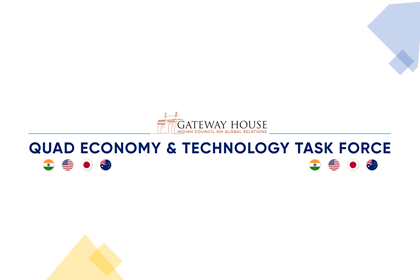 Courtesy: Gateway House
Courtesy: Gateway House
The Task Force led by Gateway House will study economic and technological cooperation between the four like-minded democracies in the Indo-Pacific.
 Courtesy: Shutterstock
Courtesy: Shutterstock
In its recent itineration, the Quad (or the Quadrilateral Security Dialogue) has been toiling since 2017, through deliberations among mid-level and senior officials, to develop a common vision for the challenges facing the Indo-Pacific region, challenges caused by China's menacing rise and aggressive behaviour.
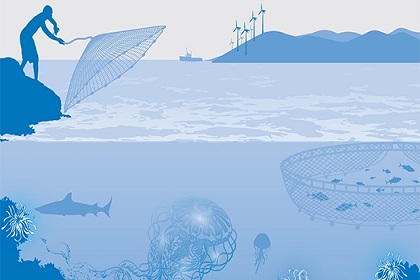 Courtesy: Common Wealth
Courtesy: Common Wealth
The Indian Ocean Region (IOR) presents a unique opportunity to develop a Blue Economy, with security, sustainability and business profitability as its three pillars. An IOR Defence Ministers' Conclave held on 4 February provided a platform to discuss regional cooperation, linking development with defence, and emphasized India's pivotal position within the IOR.
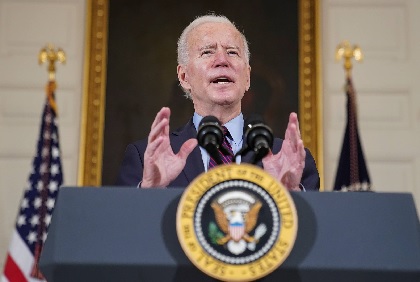 Courtesy: Twitter
Courtesy: Twitter
As President Joe Biden completes his first month in office, his foreign policy on China and the Indo-Pacific will come under scrutiny. The choices made will be significant as they will define the future prospects of the Quadrilateral Security Dialogue. Given China’s long-term and comprehensive challenges, which encompass both, security and economy-technology, the Quad will have to respond with a matching strategy.
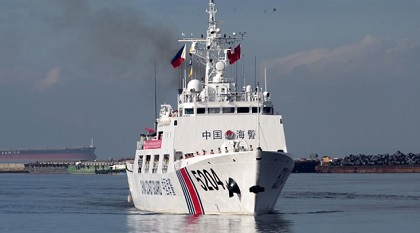 Courtesy: Radio Free Asia
Courtesy: Radio Free Asia
The recently-enacted China Coast Guard laws have renewed uncertainty in the South China Sea. India must work with the Quad to build collective maritime competence of maritime law enforcement agencies beyond the Indian Ocean Region within the Indo-Pacific.
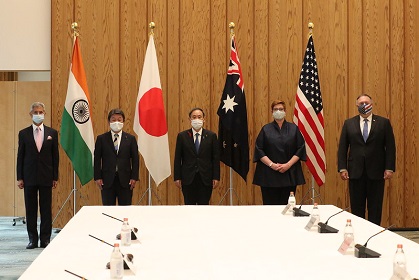 Courtesy: Shutterstock
Courtesy: Shutterstock
Should the Quad be formalized? It has evolved from a crisis response group in 2004 to a strategic partnership today between the four member-countries – India, the U.S., Australia and Japan. There are benefits and challenges to the institutionalisation of the Quad which require timely analysis, especially as the group has renewed vigour this year with the COVID-19 pandemic and China’s aggression in the Indo-Pacific region.
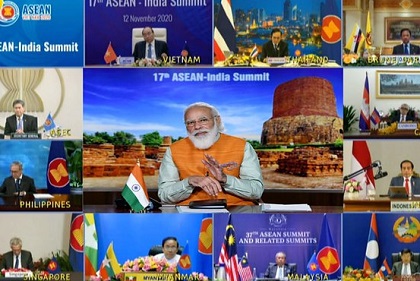 Courtesy: MEA/Flickr
Courtesy: MEA/Flickr
The recently concluded ASEAN and EAS Summit saw Prime Minister Modi highlighting the Indo-Pacific region. That’s because a cohesive, responsive and prosperous ASEAN is seen as vital to India's Indo-Pacific Vision and to Security And Growth for All in the Region (SAGAR). India’s decision to opt out of RCEP, even when all ASEAN member countries are signatories to that agreement, will mark a shift in how India enhances bilateral engagements with ASEAN nations with greater strategic intent.
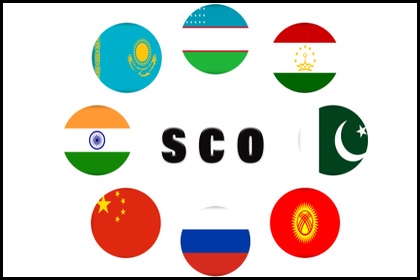 Courtesy:
Courtesy:
India will be hosting the Heads of Government Summit of the SCO on 30 November -the first time as host to a major SCO meeting, which it joined as a full member in 2017. The goal will be to connect the past of Central Asia and India to their present and future. The sweep of medieval history will then join the 21st century to bring prosperity to both regions.
 Courtesy: Gateway House
Courtesy: Gateway House
The 20th meeting of the Council of the Shanghai Cooperation Organization (SCO) Heads of States was held virtually on 10th November, 2020. The meeting precedes the SCO Summit to be hosted by India at the end of this month, and for which preparations have been on through the year. In this compendium of three essays, Gateway House assesses the potential for deepening economic cooperation between India & SCO, asks whether the SCO Charter needs dynamism and revision, and traces the roots of the regions's Buddhist presence, back to India.
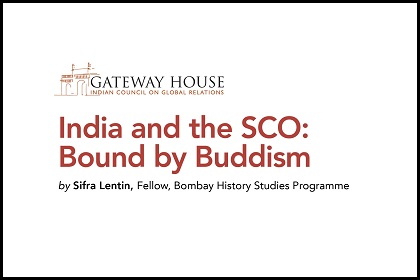 Courtesy: Gateway House
Courtesy: Gateway House
In November this year, India will be hosting the Shanghai Cooperation Organisation (SCO) exhibition “Shared Buddhist Heritage” to coincide with the SCO Council of Heads of Government Meeting and two Ministerial Level Meetings. This paper recommends a theme on India’s Buddhist legacy in the SCO, which ties together three important Buddhist historical narratives (based on archaeological evidence), that can add heft to India’s leadership in reviving people-to-people ties through Buddhism amongst the eight member nations